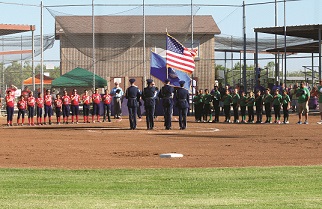

Now, to that list, add this: long-term contracts between destinations and event owners. In fact, it’s one of the best examples out there. Having an event come back to a city year after year (or even rotating back to the city every other year or every third year, for example) offers a host of benefits for both the city itself and the event owner or rights holder.
There are a lot of reasons sports commissions and CVBs are in favor of a long-term contract with an event, and we imagine they’re the same reasons you want them:
Familiarity: You get to work with the same organizations (in your case, CVB or sports commission reps, hotels, venues, etc.) They know you and they know your group and its needs. You know the city’s infrastructure, the airports and the transportation. When you think about all the time you would otherwise have to spend learning enough about a new city in order to be able to provide information on it to your athletes and their families, you can see that a multi-year contract has numerous advantages.
Financial Security: Bringing an event back to a city means bringing it to a place where you understand the pricing, including items such as airfares, hotel room rates, meal costs or even the costs of vendors such as T-shirt or trophy suppliers. Having a long-term contract means a more dependable budgeting process.
Dependability: It’s hard, if not impossible, to put a price on this. Having a long-term contract means being able to count on your partners and vendors to provide what you need, whether that means catering, volunteers or partnership with a local organization. The weather, while admittedly out of everyone’s control, is something you’ll also know and understand.
 Ease of Mind: It’s not wrong to want to be able to relax when you’re putting on an event somewhere, and to know that certain things are being taken care of. By working with partners on a repeat basis, you are assured of having someone who understands your group, your schedule and your needs.
Ease of Mind: It’s not wrong to want to be able to relax when you’re putting on an event somewhere, and to know that certain things are being taken care of. By working with partners on a repeat basis, you are assured of having someone who understands your group, your schedule and your needs.
Sports commissions, as well as convention and visitors bureaus, want long-term contracts every bit as much as you do. A one-and-done event can serve a purpose, but a long-term contract is what everyone strives for. So as a result, our goal is always to bring an event back. We’ll go the extra mile to try to bring in an event like that, just as you’ll probably work a little harder to give the city the incentive to want that multi-year contract with you. Who wouldn’t want all those advantages, after all?
If you’re looking for a multi-year contract, here are some tips:
Make it clear at the outset that you’re in it for the long run: As stated previously, a destination is always going to be more interested in an event that shows the promise of returning. Both the event and the CVB/sports commission can consider the first year a trial run, with the option to extend the contract if it works out.
Bring plenty of history: Whether you’re coming from other multi-year contracts or whether your event has moved from city to city, you’ll need to provide numbers regarding the following:
An overview of your event and your athletes
Room nights used and types of rooms
Move-in/move out pattern
Information on sports venues you have used and the types you are looking for
Any ancillary information on restaurant or bar usage that might be helpful (or if it exists, any economic impact information)
Any banquet space needed
Services you will require from the facility or the city
 Let your prospective partner know what is involved with the event: After all, no two sports events are the same, and even within the same sport, two events can vary widely in the amount of support they need. Make it clear what you will do, and what you will need your partner to do. A few things to outline in advance:
Let your prospective partner know what is involved with the event: After all, no two sports events are the same, and even within the same sport, two events can vary widely in the amount of support they need. Make it clear what you will do, and what you will need your partner to do. A few things to outline in advance:
Will you be putting on the event yourself or will you need help?
Do you need volunteers to help with the event? Can the CVB or sports commission supply them, or will you be checking with a local sports club (such as a gymnastics program or a synchronized swimming club) for assistance?
If officials will be needed, who will find them?
Will you be using a housing bureau? If so, do you have one already picked out or would you like the CVB to recommend one?
Who is responsible for securing the facility, schedules, officials, etc.?
What other type of support services will the event need?
Those are the basics. Obviously, as you get further into the planning process, other aspects of your event will come into play.
Sometimes, even if an event is looking for an extended contract, it’s just not going to be a good fit for the city you’re considering. It might be that another event, such as a convention, is already in town at that time and will be taking up the hotel rooms you need. Assuming the city has everything else you want (sports venues, for example), you may need to be flexible with your dates. For example, does your event have to be held the first week in May, or could it be the second or third week? Talk to the CVB and find out what their occupancy is going to be like at different times during the month; there may be a time that is right for you.
Our CVB has been fortunate to be able to work with a number of sports events that return year after year. They’re different from one another, but they each bring something unique to the area. As you’ll see below, they came here with different needs, and stayed on for different reasons.
The Texas West Little League State Championships is exactly what it sounds like: a multi-team event that comes in from all over, for both softball and baseball. When they first approached us, they told us they were looking for a three-year home for their event. That first year was their trial event, but we pulled out all the stops and as a result, it’s coming back for two more years. Our goal is to keep it here permanently. It’s a big deal for us and we treat it with the respect it deserves. We benefit from knowing they’ll come back, and from knowing what their room nights and restaurant use will be during that time. In turn, they have said they are overwhelmed by the support our community shows for their event. People in the area really look forward to this event, and they turn out for it each time. That means a lot to the kids and their parents. To give you an idea of how popular it is, we have even had people who travel to our city for business plan their work around this tournament!

The Action Zone Champions Classic is an example of an event that returns continues each year and is an enormous success each time it is held. It is a three-day high school football showcase held at the end of August, just prior to the start of school. Of course, football is big in Texas, and high school football is huge. The Champions Classic is our signature event and it doesn’t always include room nights. However, the event does raise revenue to distribute scholarships; as a result of this event, we’ve been able to give out over $100,000 in scholarship funds over the years. It draws enormous crowds and a lot of attention for local athletes. It once again is embraced by our community through the continued sponsorships, many of which have been with us since the inception of the event.
As different as each of these events are, they provide an excellent example of the advantages of long-term contracts. In each case, the events have found something they want in this area, and we have been able to realize the benefit of having them return as well.
Granted, there are some groups that want to see new cities each time. For those organizations, a multi-year contract may not be a good fit. However, in many cases, it may be worth it for those organizations to explore rotating locations, whether that means within one state, one region or across the U.S. In this case, a contract that brings an event back to a city every third year could be considered.
Over the years, we’ve seen a few issues come up with regard to bringing sports events to particular venues; you should explore them as well before making your final decision on a long-term location.
Sponsor restrictions: It’s not uncommon for sports events to be sponsored by various entities, either sports-related or not, and for one condition of sponsorship to be that banners or signs will be featured prominently throughout the event. Check with the venue to make sure this type of display will not cause a conflict with any pre-existing arrangement the venue may have with a competing vendor. For example, we once hosted a sports event that had a health system as a title sponsor. Unfortunately, the electronic scoreboard of the venue was sponsored by a competing health system. The compromise we worked out was that the event could still display their banner with the sponsor’s name on it, but the sponsor would not be mentioned on the electronic scoreboard.
Food and beverage: The same type of arrangement might be in place in the concession stand at a given event. Venues may have set arrangement with one specific soft drink, whereas the event has a preference for, or a prior deal with, a different kind, which may mean you need to make special arrangements in advance. (In case you’re wondering, we’ve had to work with this situation as well; it’s probably safe to say a lot of people in the industry have been faced with similar challenges.)
It’s not unusual for someone to have a vendor or a sponsor whose goods they really need to use. Maybe it’s something that has never come up in previous discussions when you’ve contracted with a venue, but these days, it’s safer to put it on the table. Your CVB or sports commission can help you find the information you need to know, or can point you in the direction of the person at the venue who can give you the answers.
All told, however, there are many more benefits than drawbacks (or even challenges) to having a long-term contract between a destination and an event owner. And it all comes down to this: most everyone loves repeat business and a long-term relationship.

